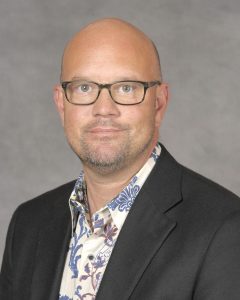Washington CIO Michael Cockrill is moving to the private sector later this month. After being appointed by Washington Gov. Jay Inslee in 2013, Cockrill oversaw the creation of Washington Technology Solutions (WaTech) the agency created in 2015 to centralize state IT and improve services for the people of Washington through technology. Cockrill spoke with MeriTalk State and Local about his time as CIO and the jump to rejoin the private sector.

After serving in the state government for nearly four years, Cockrill admits to one bias he held when he first walked in the door.
“I didn’t walk in with expectations, but I did walk in with biases I was unaware I had,” Cockrill said. “I did walk in with the private sector bias that people work in government because they can’t get a job anywhere else. I was disabused of that quickly. I am constantly impressed by the caliber of people who choose to do public service and their rationale for doing it. They are truly mission-driven people, who come to work every day because they believe they can make a difference. These people are working for 60 percent less than their market value and they get up every morning to engage in public service.”
As CIO, Cockrill oversaw significant change and reorganization in the state. Aside from being present for the creation of WaTech, Cockrill also oversaw the creation of the Washington State Office of CyberSecurity, which protects state networks from cyber threats and helps agencies recover from attacks, and he worked to establish the Office of Privacy and Data Protection. However, he’s most proud of his work with recruitment and retention of state technology employees.
“If we don’t reinvent the way we attract people and retain employees, eventually people won’t want to work for state government,” said Cockrill.
The state of Washington faces many internal and external struggles when it comes to attracting and retaining talent, including an aging workforce and nearby private sector competition.
“We’re really hit by the Silver Tsunami and we have significant amount of competition. We compete for the same talent with Google, Amazon, and other tech giants,” Cockrill said.
To combat those challenges, Cockrill worked on making WaTech a more desirable place to work. He made the agency a much more friendly place for the mobile workforce, something he hopes appeals to millennial workers.
After stepping down on Oct. 20, Cockrill will join Altius Institute for Biomedical Science, which is working to reinvent computational biology. Cockrill spent 20 years in the private sector, including a nine-year stint with Microsoft.
Cockrill’s announcement to step down came shortly after results from a state audit were released. The audit included eight steps for improvement related to the performance of WaTech. However, Cockrill said the audit had no bearing on his decision to leave and he informed Inslee about the move nearly a month prior to the audit announcement.
In terms of why he left the position, Cockrill cited both personal and professional reasons.
“On a personal level, I live in Seattle, but work in Olympia,” Cockrill said. “The other part of it is I think that this role should turn over fairly often. Particularly when you have stability in the layer below the director, you should be injecting the organization with new ideas. Another leader would re-energize the organization.”
Rob St. John will serve as acting director while a search is conducted to replace Cockrill. St. John currently serves as deputy director in the office of the chief information officer under Cockrill.
“Rob is a 30-something year veteran of state government and actually led one of the three organizations that we brought together when WaTech was created,” Cockrill said. “There’s a lot of continuity from the perspective of WaTech; this will be a minor change in its leadership.”

